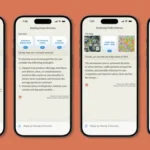In a surprising turn of events, renowned author George R.R. Martin, best known for his epic fantasy series “Game of Thrones,” has initiated legal action against OpenAI, the owner of ChatGPT. This lawsuit has garnered significant attention in both the literary and tech worlds. Let’s delve into the details of this high-profile legal battle.
The Lawsuit Unveiled
George R.R. Martin’s lawsuit against OpenAI revolves around alleged copyright infringement and intellectual property concerns. The author claims that ChatGPT, an AI language model, has been generating content that closely resembles his own literary works, including “Game of Thrones.” Martin contends that this unauthorized replication of his writing poses a threat to his creative rights and financial interests.
OpenAI’s Response
OpenAI, a leading player in the field of artificial intelligence, has responded to the lawsuit by emphasizing the principles of fair use and the transformative nature of AI-generated content. The company maintains that ChatGPT generates text based on a wide range of sources and is not specifically designed to mimic any particular author’s style. OpenAI intends to vigorously defend itself against the allegations.
The Broader Implications
This legal battle between George R.R. Martin and OpenAI has broader implications for the world of AI-generated content and copyright law. It raises fundamental questions about the boundaries of AI creativity and the responsibility of AI developers to prevent potential copyright infringements.
Protecting Intellectual Property in the Age of AI
As AI technologies continue to evolve and become more integrated into various industries, the protection of intellectual property becomes increasingly complex. This case serves as a stark reminder that AI-generated content can blur the lines between creativity and replication, necessitating a thorough examination of copyright laws and regulations.
The Future of AI and Literature
The outcome of this lawsuit could potentially shape the future of AI and its relationship with the creative arts. It may lead to discussions about the need for clearer guidelines and safeguards to protect the interests of authors, artists, and content creators in the digital age.
Conclusion
George R.R. Martin’s legal action against OpenAI has ignited a significant debate about the intersection of AI and creativity, particularly in the context of intellectual property rights. While this case unfolds in the legal arena, it underscores the evolving challenges and opportunities presented by artificial intelligence in the realm of literature and content creation. It remains to be seen how the courts will ultimately decide this pivotal case and what impact it will have on the future of AI and its creative potential.










